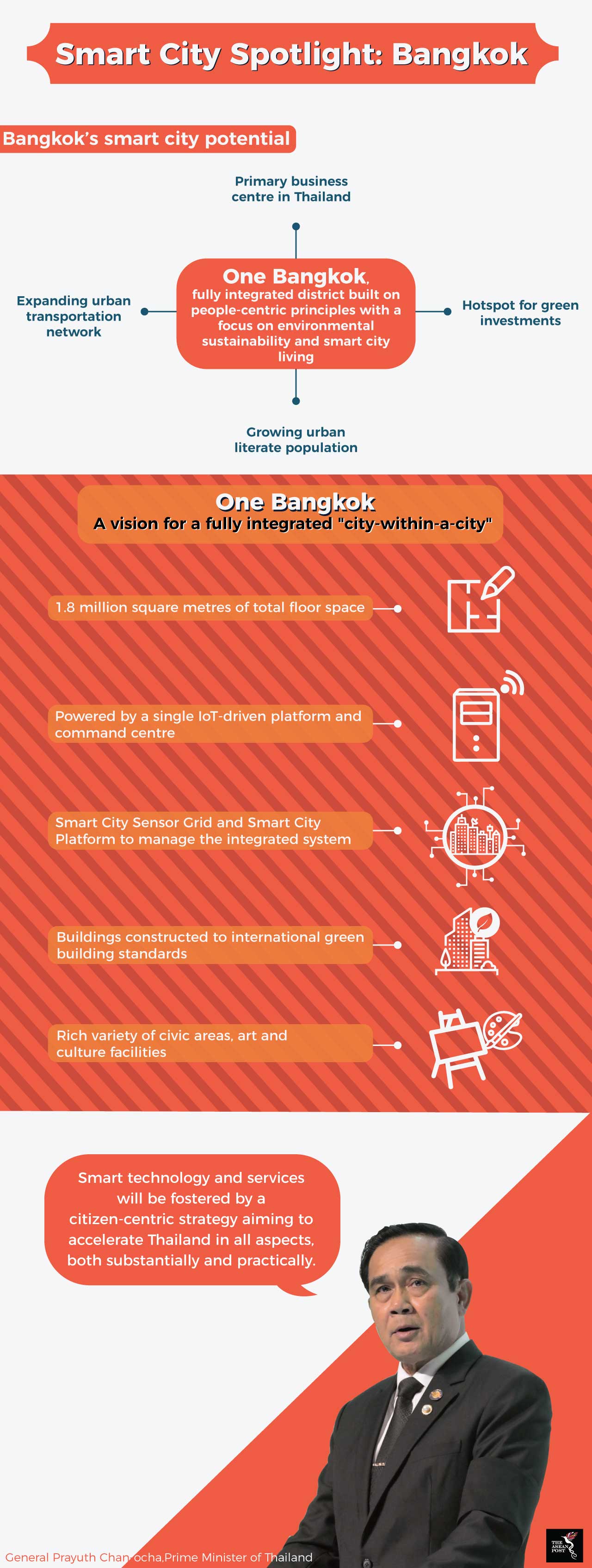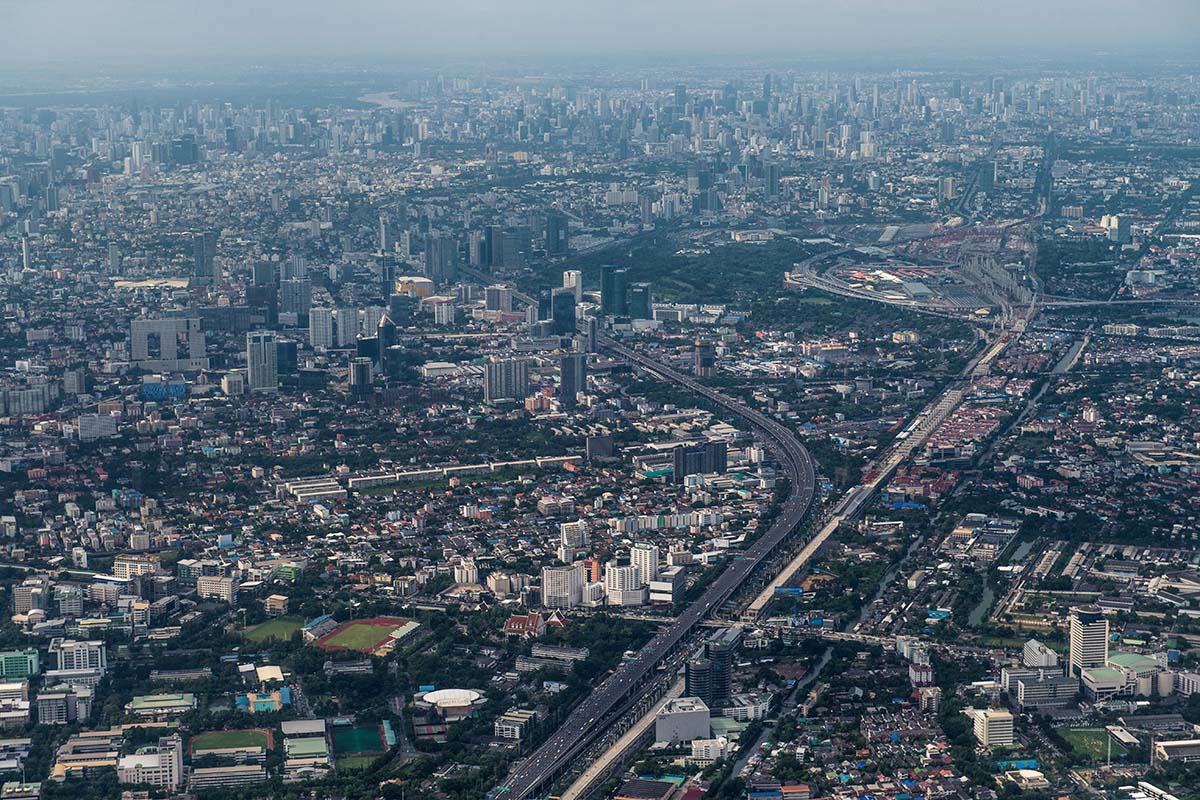As a primate city, Bangkok – Thailand’s largest city – is the foremost potential smart city in the country. It was recently inducted into the first cohort of the ASEAN Smart Cities Network (ASCN) in Singapore last April.
Thailand has taken positive steps towards realising a digital economy and the development of smart cities is a priority. This is in line with the government’s Thailand 4.0 initiative which aims to see the country prosper as a high-income nation with an economy dependent on innovation and value-based industries.
Towards a smart and sustainable Bangkok
One of the main aspects of a smart city is the construction of energy efficient buildings. Park Ventures Ecoplex which houses the Okura Prestige Hotel in Bangkok’s Central Business district was the first building in the city to be accorded the Leadership in Energy and Environmental Design (LEED) platinum rating.
Its achievement has become the yardstick for other energy efficient buildings in the city. According to the 20 Year Energy Efficiency Development Plan (2011-2030), Thailand aims to reduce energy consumption by 20 percent in 2030. This would require companies to adopt more stringent steps to reduce energy use in their buildings.
Earlier this year, Thailand’s Energy Policy Administration Committee approved a new building energy code (BEC), applicable to buildings with an area greater than 10,000 square metres. The regulations, which govern power usage of air conditioning systems, lighting and hot water, are expected to slash electricity consumption by 10 percent. Over the next 20 years, the BEC is estimated to save approximately US$1.5 billion of the nation’s power bill.
Creating a liveable smart city
The rapid rate of Bangkok’s urbanisation also calls into concern traffic congestion and other liveability issues. World Bank estimates indicate that by 2050, around 60 percent of Thailand’s population will be living in urban areas, in and around the capital.

Source: Various sources
Existing public transportation infrastructure in Bangkok simply cannot accommodate that. Plans are underway to grow Bangkok’s still nascent network of public transportation so that 60 percent of the population could rely on public transport for their daily commute as opposed to 40 percent today. The rapid rail network in the greater Bangkok area is also set to expand to more than 500 kilometres by 2029.
In terms of sustainable living conditions, the One Bangkok “city-within-a-city” district will be an integral part of the smart city development. It will be driven by elements of Internet of Technology (IoT) spanning an area of 16.7 hectares. With eight hectares dedicated to green and open spaces, the project is set to be a prime example of people-centric and environmentally sustainable smart city living.
Investing in Bangkok’s smart city vision
Given Bangkok’s immense potential to be a superior smart city in the region, it still faces plenty of shortfalls. An outdated electricity network, lacklustre public transportation infrastructure and inept smart solution technologies are just a few of the pressing issues that must be dealt with.
In doing so, there must be adequate financial support and the Thai Board of Investments (BOI) has recently rolled out a smart city promotion scheme to lure investors to potential smart cities in the country.
The investment incentives will focus on two primary areas. Firstly, to develop smart city infrastructure systems like telecommunications networks and Open Data Platforms. Secondly, to support intelligent network developers who design IT systems for smart cities. Investment projects under these two categories will be granted an 8-year corporate income tax exemption.
“In the end, we aspire to see more benefits for the people, such as efficient and well-connected air, sea and land transport routes; improved social equality for all citizens including the disabled and the elderly; enhanced safety and security; improved ease of doing business; as well as more efficient public services, energy consumption and better management of natural resources,” said Duangjai Asawachintachit, Secretary General of the BOI.
Bangkok definitely has what it takes to be a major smart city in Southeast Asia. Nevertheless, it still has much to work on in terms of improving its infrastructure and integrating smart city technologies into the fabric of the city’s development. If the government stays true to its Thailand 4.0 vision, this will be an attainable dream for the metropolis.
